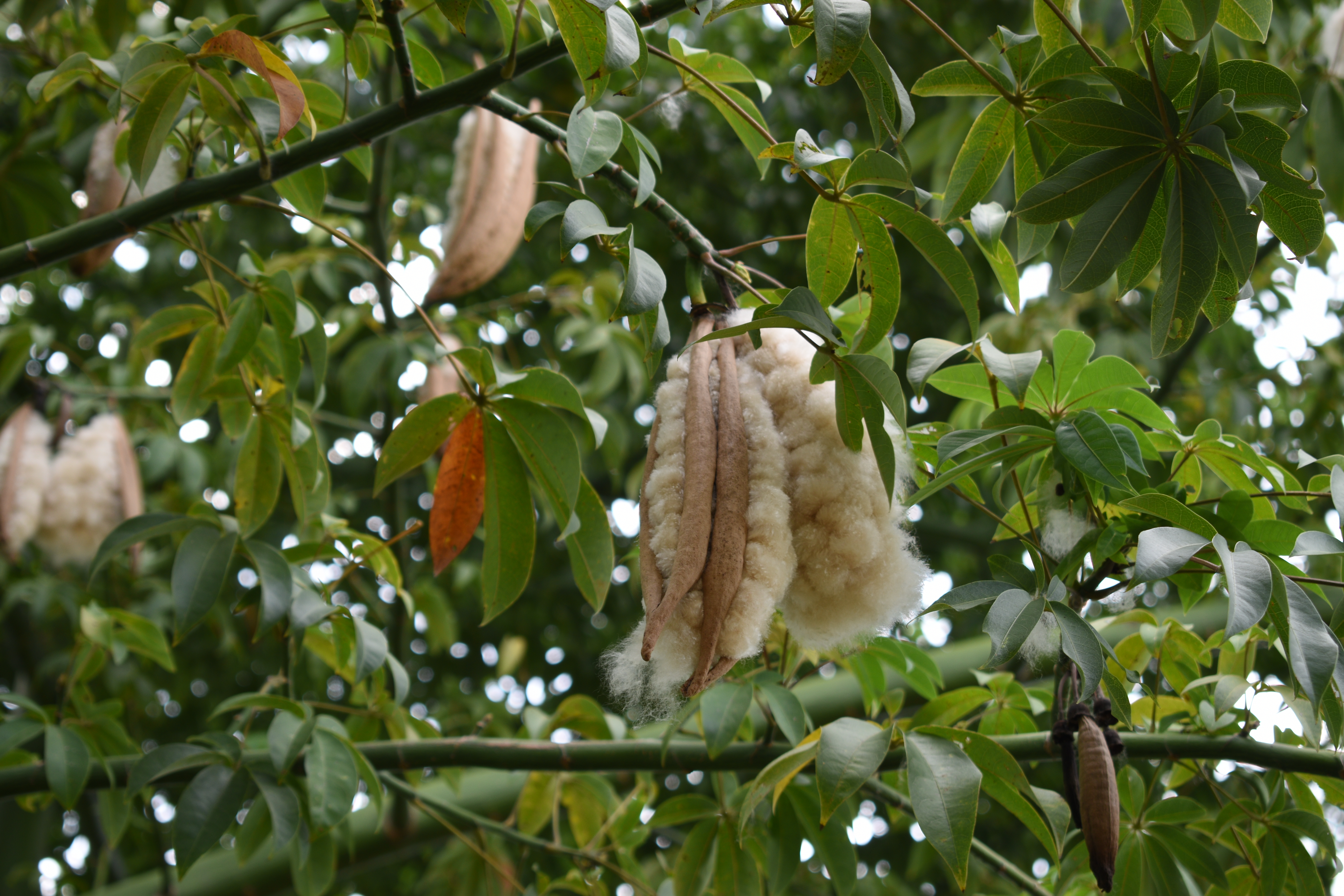Kapok, << KAY pok or KAP uhk, >> is a light, soft, lustrous, cottonlike fiber. It is composed primarily of the plant material cellulose. It comes from the seed pods of the kapok tree. Kapok trees grow in Indonesia, the Philippines, India, Sri Lanka, tropical America, and Africa.
After the ripe fruit of the kapok tree is picked, the seeds and fibers are taken out and dried in the sun. Workers then separate the seeds and fibers and pack the fibers into bales.
Kapok is light and verminproof and does not absorb water readily. It is useful as a filling for mattresses and furniture, and also as a substitute for cork in life jackets. But in many of these uses kapok is being replaced by synthetic fibers, which cost less and are more durable.
Kapok seeds yield an oil that is used in making soap and cattle feed. The tree produces a gum used in medicine. The light, soft wood is used for canoes and rafts.

